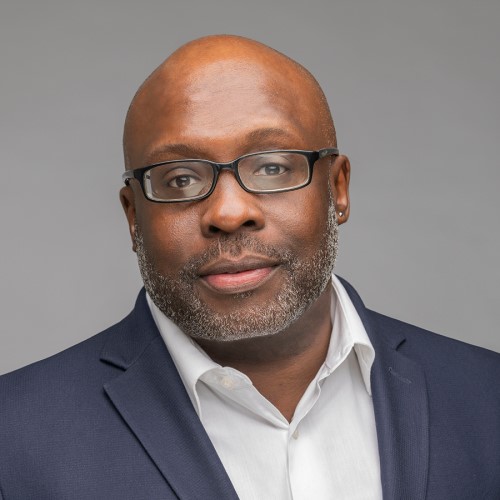By Tacuma Roeback
Chicago Defender
The quest for redemption is a journey as old as time. The Parable of the Prodigal Son teaches us that no fall from grace is irredeemable.
But for many of the 1.2 million incarcerated Americans, redemption remains a distant hope, an unreachable shore. Upon their return home, they can face burdens like shame, blame and guilt, along with the diminished prospects of enjoying a normal life as finding sustainable employment and affordable housing remains elusive.

Jesse Jackson Jr., once a rising star in the Democratic Party and a proud member of one of America’s most influential political families, embodies the universal certainties that impact all of us: fallibility and the quest for that redemption.
For 17 years, Jackson served as a congressman for Illinois’ Second District, advocating for healthcare, education and job creation in the predominantly Black communities of Chicago’s South Side and south suburbs. However, his congressional career ended in 2013 after he was sentenced to 30 months in federal prison for using campaign funds for personal expenses.
Today, Jackson is on a different campaign—to secure a pardon for himself and to champion forgiveness and redemption for millions of formerly incarcerated individuals.
His time in Congress left an indelible mark on his district.
“I built every Metra station from Hyde Park to 93rd Street,” Jackson said, noting that those South Side stations were not permanent when he got elected.
“I had standards for the South Side of Chicago and south suburbs whose water was worse than Flint, Michigan,” he said, referring to the millions he was able to secure for municipalities like Ford Heights to have access to the Lake Michigan water supply.
Jackson’s advocacy extended beyond infrastructure. His legislation spurred education reforms, healthcare access and economic opportunities.
“I used my name and my leverage and my position to bring light to a dark place, to lay the foundation for why I was running for Congress. My dad taught me that,” Jackson said, referring to his famous father, the Rev. Jesse Jackson.
A fall from grace
The news headlines from 2013 stated that Jackson pleaded guilty to conspiring to defraud his re-election campaign of approximately $750,000.
What really occurred, said Jackson, was that he took $75,000 a year, over 10 years, from money he raised, that he used for living and some personal expenses—a dilemma for a young congressman with a big name, without the big money, who found himself needing to live in two big cities at the same time. Campaign finance law does not allow officials to pay for expenses with campaign funds, even if they are official expenses for the job they are elected to do.
“I misled the American people, I misled the House of Representatives,” he said, addressing the U.S. District Court judge who presided over his case. “I was wrong and I do not fault anyone.”
Reflecting on his actions from back then, Jackson now sees his prison sentence as a pivotal chapter in his life. “I own my behavior. I took my 30 months,” he said. “But what I have found is that the road to redemption is far more difficult than actually doing the time itself.”
A case for forgiveness
Jackson believes his contributions to society and his ongoing advocacy make a strong case for forgiveness—and for a presidential pardon.
“A pardon is an act of the grace of God that we, the American people, elect someone to distribute to us,” Jackson said. “Only the president of the United States has the power to restore our lives, and for state offenses, only governors have the power to restore our lives after we’ve paid our debt to society.”
His commitment to this cause grew stronger during his time in prison. While in solitary confinement for helping inmates fill out pardon applications without official approval, Jackson found inspiration in Martin Luther King Jr.’s “Strength to Love.” A sermon from that book and his faith helped him see the constitutional basis for pardons as a moral duty.
Jackson’s advocacy now goes beyond his situation.
“I decided to champion this issue, not just for myself, but for men and women who don’t have access to the media, to the microphone, to social media,” he said. “Hopefully, people will better understand how many men and women are lingering on the sidelines of American society because the grace of God is not being distributed to them.”
Looking ahead
Despite his challenges, Jackson remains focused on service. When asked about a potential return to politics, he was reflective. “I want to shift my focus to public service. But there are so many different forms that it could take,” he said. “I don’t know if the people would ever want me again, but if they did, that would be their choice.”
He also hopes to reshape his legacy for his children. “I want not to be remembered for the things that I did wrong, but the things that I corrected, things that I discovered and the things that I tried to do right for all people,” he said.
“I have a son who’s a junior at Morehouse College, and how my son sees me matters to me. I have a daughter who graduated from UCLA and attended American University in Paris, and what she thinks of her father matters to me.”
Why the Chicago Defender supports Jesse Jackson Jr.’s pardon
In Jesse Jackson Jr. ‘s journey, there is resilience, accountability and an unyielding determination to serve others.
His work as a public servant, writer, scholar and advocate for the incarcerated demonstrates his commitment to redemption.
If forgiveness is a cornerstone of American values, Jackson’s work to extend grace to others underscores his understanding of this principle. As he stated throughout his interview, “If we extend grace to one, we must extend it to all.”
The Chicago Defender supports Jackson’s pardon as a reflection of our belief in second chances and a reminder that redemption is possible for those willing to earn it, especially when it is done in service to others.
The post Opinion: Speaking of pardons, here’s why Jesse Jackson Jr. deserves one appeared first on AFRO American Newspapers.










